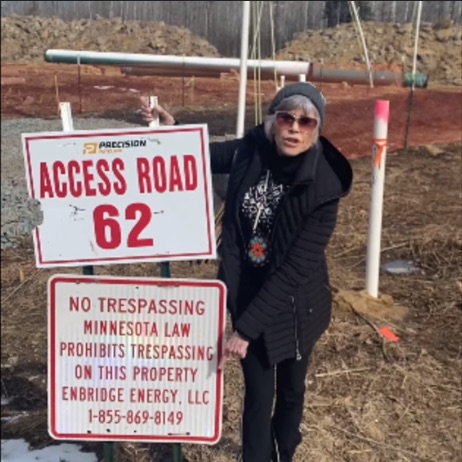Dear Ms. Fonda,
I’m writing today to ask you to accept Stephen Buffalo’s invitation to have an honest and forthright discussion about Canadian oil and gas.
Stephen is the President and CEO of the Indian Resource Council of Canada, and a tireless advocate for First Nations people.
Canadians are your neighbours, allies, business partners and friends. That is why I was disappointed to hear you disparage Canada’s world class oil sands as “the worst” and “most poisonous” in your opposition to the Line 3 pipeline, an energy conduit that’s critical to both our countries.
Canada is proud of our energy industry and the women and men who work to keep both our great nations running — ensuring homes remain heated and cooled as needed, getting crucial goods reliably to their destinations, and making sure the lights turn on and off when you flip the switch.
Here are some things Mr. Buffalo and his colleagues would like to discuss with you:
- Canada’s oil sands have created opportunity and prosperity for First Nations communities. Since 2012, Canadian oil sands producers have spent $13 billion with Indigenous-owned businesses, including a record $2.1 billion in 2018;
- Canada is a world leader in Environmental, Social and Governance (ESG) standards, ranking number one compared to the world’s top oil and gas reserve holders;
- Greenhouse gas emissions per barrel of oil produced in the oil sands have fallen 36% since 2000. As well, an analysis by IHS Markit found GHG intensity in the oil sands to be in the range of the U.S. average refined crude, and it’s continually improving;
- Canadian oil and gas companies spent a record $1.6 billion on research and development in 2019 – about $43 for every Canadian – to help reduce the industry’s environmental footprint.
You raised concerns about “foreign” oil coming from a pipeline from Canada. But you should know that the U.S. will see oil imports rise for decades to come, much of that heavy oil, which is produced in the oil sands. Without Canadian product to feed refineries on your Gulf Coast, the world’s largest heavy oil processing region, countries like Venezuela and Mexico will become your country’s main suppliers.
As for Line 3, it has connected our nations since 1968, providing energy for refineries in Minnesota, Wisconsin, and other U.S. markets. Replacing it is about improving safety and reliability to ensure a critical resource from a friend and ally continues to be available.
I ask that you join Stephen Buffalo and his colleagues to learn about Canada’s oil sands and our industry’s commitment to maintaining and improving its place as a world leader in responsible resource development. Armed with the correct information, I hope you might reconsider your opposition to Line 3.
Respectfully submitted,

















